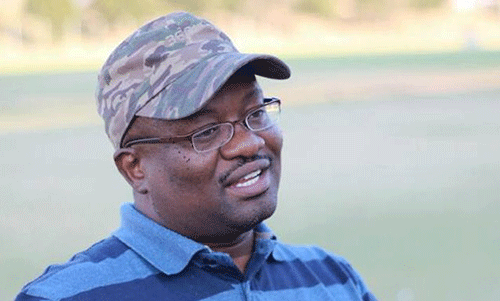Henny Hendly Seibeb
From the Atlantic south west coast of Africa, we take lessons in Luiz Inacio Lula da Silva’s victory in the first round of Brazil’s elections, which were held on 2 October 2022, and hold it as a sign of hope not only for Brazil but also for Latin America and globally.
With Lula, Brazil could return to democracy and a more social and just society. Above all, it is a hope for the poor, who suffer most from Bolsonaro’s policies, and a chance to end the devastating destruction of the rainforest in the Amazon, and re-emergence of the indigenous Karipuna people’s plight on the “Lula agenda”.
The indigenous Karipuna people are facing continued land grabbing of their forests land by the corporates and powerful for logging and cattle farming. Bolsonaro, the authoritarian ignored them completely.
“The biggest legacy of my presidency is not the programmes that took 30 million Brazilians out of absolute poverty and created 15 million jobs. It is the accountability of the public institutions and real partnership with business, labour and civil society that brought hope to the people. We put the needs of the people first. Not ours.”
This was the fundamental point that Lula made in 2012 when he met social democrats of the world in the capital Brasilia.
Unfortunately, Lula did not get the absolute majority in the first round and the gap to Bolsonaro was not that big: this Sunday, 30 October would be extremely important to ensuring Lula’s victory, which will be in the interest of the whole world. The choice will be between authoritarianism and democracy, between dark times ahead and the hope for a better future.
Lula offers hope to the poor in Brazil. During his two terms as president of Brazil, and the Workers Party, he identified the need to stabilize the macro-economic environment through a set of pragmatic policies that established stability. But he did that as part of collective leadership through transparent dialogues, even with his fiercest critics.
Lula is the antithesis of the “big man” syndrome of political arrogance that dominates so many governments, including Namibia, with synchronized chants of so-called “processes, systems and institutions” which is essentially a systemic cover-up for government lies, corruption and incompetency. Lula consolidated and expanded Conditional Cash Transfers (CCTs), firstly under Zero Hunger and later Bolsa Familia, now the largest such scheme in the world. It is four sub-programmes educational stipends to boost school attendance, maternal nutrition, food supplements and a domestic gas subsidy benefitted some 30 million of Brazil’s poorest people, with a target of 44 million in October 2006 (Hall, 2006). Breaking the inter-generational cycle of poverty became the hallmark of the Lula Presidency, compared to such fallacies fed to us by President Hage Geingob, under the failed Harambee Prosperity Plan (HPP) doctrine in Namibia.
Geingob has already sold out on oil and gas revenues, claiming such natural resources do not belong to Namibians, including also on the genocide reparations talks with the Germans!
The Landless People’s Movement supports Lula and the progressive forces in their campaign to win the second round at the end of October. We are of the view that international solidarity with Lula and the Brazilian Workers Party is more necessary than ever in our efforts towards creating a culture of new internationalism and global solidarity for food sovereignty, small-scale farming and reducing poverty, inequality and unemployment.
* Henny H. Seibeb is the Deputy Leader and Chief Strategist of the Landless People’s Movement


